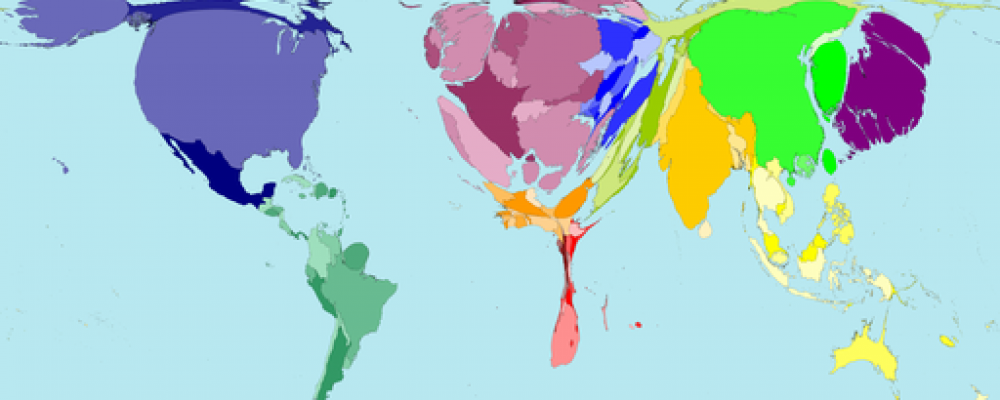NOTE: The Growth Economics Blog has moved sites. Click here to find this post at the new site.
So now that I’ve yanked myself out of the nanaimo bar-induced coma of last week to return to the living, I’ve got a stack of links that have been piling up. So here is a last post of 2014 for you to scan through on your phone while you watch Pit Bull’s NYE countdown. (What, you’re *not* watching Pit Bull? And is it Pit Bull or Pitbull?)
Two books I read recently that were quite good:
- The First European Revolution by R.I. Moore. This was a fun read. Moore traces the origin of a unique “European” culture to the time around 900-1000 AD. This was after the Carolingian Empire had broken up, and the remaining areas were scrambling in some sense to re-order themselves. Key events are the clear separation of clergy from nobles (enforced through celibacy of clergy) and strict primogeniture (which eliminates contested lordship of warrior clans). Need to process this alongside Mitterauer’s Why Europe? which is also about creation of unique European family structure in place of clans.
- Adam Tooze’s The Deluge, about America’s plunge into world leadership during and after WWI. What stood out for me was the ridiculous self-righteousness of Woodrow Wilson. I had this sense that he had been too idealistic to solve the real-world problems at Versailles. But this book makes it even more clear that what we call “idealism” was really a entitled feeling of superiority of Protestant white dudes over the unwashed masses.
I also read a lot of garbage, but these two books make me sound smart, so there you go.
Assorted links of interest:
- Stephen Gordon piles on a willfully stupid article regarding Canada and the “resource curse”. Key quote, and this is one to pin up on your wall: “If God provides you with an abundance of something that the rest of the world values highly and is willing to pay through the nose to obtain, then this is a blessing, not a curse. If the ‘resource curse’ has any meaning, it has to do with politics, not economics.” There is never a time when you *don’t* want to have more of a valuable stock of a natural resource.
- More on the “resource curse”. Countries with resources are richer, but grow more slowly. So to the extent that you think being rich but growing slowly is a curse, there you have it. Recent paper by Alexander James says that the slow growth we see in resource exporters is due to slow growth in their resource earnings. Drops in commodity prices make overall growth look bad (think of Russia today). What James shows is that over the last few decades, the growth rate of the non-resource sectors of these resource-exporters grow just as fast as everyone else. So “resource curse” or no?
- Speaking of willfully stupid. Scientific American, of all places, published this econo-crank piece on the digital economy and secular stagnation. The lede is that Twitch sold for 970 million, but employs only 170 people. Presumably this means that economic growth might end. Uh, what? The market value per employee of tech companies has little to do with the rate of economic growth. If anything, the higher this is, the *greater* will be growth, as the incentives to start tech companies are so huge. We can have reasonable discussions about the relative value of different types of labor and how they might fare as innovation occurs, but that is an entirely different discussion from the “end of growth”.
- Send LateX code in Gmail. You heard me. Go check it out.
- A very nice comment by Scott Sumner on Noah Smith‘s comment regarding taxes and labor effort. Scott’s good point is that people often try to have it both ways in arguing for European-style social safety nets. When you say that GDP per person is only 70% of the US level, they say that this is because they work fewer hours, but have just as high utility. But if you talk about high taxes in Europe, they claim that Europeans work just as much as US workers. Which is it?

Botswana has a resource curse called diamonds; Norway is cursed with lots of oil and natural gas; poor; not. Ruler curse plus resources seems to be more of the problem. But it don’t need to be resources. A certain finance man, in a particular country, was asking why was it that the national steel company was losing money yet the customers of this steel company were making money from that steel. Same problem: ruler curse; the company was being fleeced by politicians. Which I think is consistent with your post above.
I think you’re right on here. There is nothing about the resource per se that causes a curse. The curse is kleptocratic government, regardless of what industry they steal from. Resources may be easier to siphon off money from, yes. Hence the correlation.